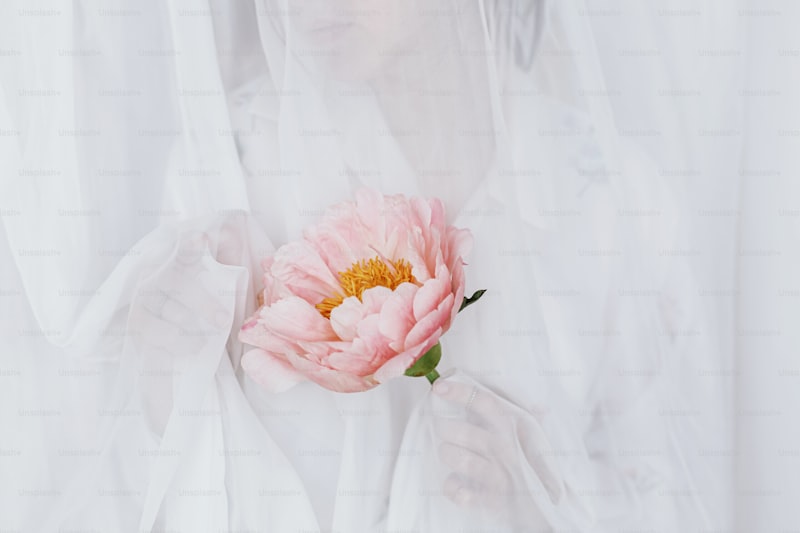Harmonizing Color Palettes in Bridal Attire: A Guide to Creating the Perfect Wedding Look
The wedding day is one of the most significant events in a person's life. As such, the choice of bridal attire plays a crucial role in making that day memorable. One of the key aspects of bridal attire is the color palette. Harmonizing color palettes in bridal attire can create a stunning visual impact that complements the wedding theme and the personality of the bride.
Understanding Color Theory
To effectively harmonize colors in bridal attire, it is essential to have a basic understanding of color theory. Color theory encompasses the principles that explain how colors interact and the emotional responses they invoke. The color wheel is a fundamental tool in this regard and consists of primary, secondary, and tertiary colors.
Here are a few fundamental concepts to consider:
| Color Harmony | Description |
| Complementary Colors | Colors that are opposite each other on the color wheel (e.g., blue and orange), creating a vibrant look. |
| Analogous Colors | Colors that are next to each other on the color wheel (e.g., blue, blue-green, and green), resulting in a serene and harmonious effect. |
| Monochromatic Colors | Variations in lightness and saturation of a single color, creating an elegant and cohesive appearance. |
| Triadic Colors | Three colors spaced evenly on the color wheel, offering a vibrant and balanced aesthetic. |
Popular Color Palettes for Bridal Attire
The choice of color palette is often influenced by the wedding theme, season, and venue. Here are some popular color palettes to consider:
1. Classic White and Ivory
Traditionally, white or ivory has been the go-to color for bridal attire. These classic colors symbolize purity and simplicity. They can easily be paired with a variety of accent colors such as gold, silver, or pastel shades, making them versatile for different wedding themes.
2. Soft Pastels
Soft pastel colors like blush pink, lavender, and mint green are perfect for spring and summer weddings. These colors exude a romantic charm and can be beautifully harmonized in bridal gowns and bridesmaid dresses.
3. Bold Jewel Tones
For fall and winter weddings, bold jewel tones like emerald green, sapphire blue, and ruby red can make a stunning statement. These rich colors not only reflect the season but also add a touch of elegance to the wedding attire.
4. Earthy Tones
For outdoor weddings, especially in rustic settings, earthy tones like terracotta, olive green, and mustard yellow can create a natural and harmonious look. These colors can be paired with floral arrangements to enhance the overall vibe.
Choosing the Right Fabrics
The choice of fabric can also impact how colors appear. Certain fabrics can enhance or mute the colors in bridal attire. Here are a few popular fabrics along with their characteristics:
| Fabric Type | Description |
| Satin | Luxurious and smooth, gives colors a soft sheen. |
| Lace | Richly textured, can add depth to colors. |
| Tulle | Lightweight and airy, perfect for layering color. |
| Chiffon | Flowy and soft, ideal for creating ethereal looks. |
Tips for Harmonizing Color Palettes
Here are some tips for brides looking to harmonize color palettes in their wedding attire:
1. Consider Your Skin Tone
Your skin tone plays a significant role in how colors appear on you. Warm skin tones look great in earthy shades and warm pastels, while cool skin tones shine in jewel tones and cool pastels. Understanding your undertone can help you in selecting colors that enhance your natural beauty.
2. Use a Color Palette Generator
Online tools and color palette generators can provide inspiration and help visualize how different colors will look together. These tools often allow you to input a base color and generate harmonious palettes.
3. Consult with a Designer
If you're unsure about your color choices, consider consulting a bridal designer or stylist. They can provide professional guidance tailored to your vision and preferences.
4. Incorporate Personal Touches
Don't hesitate to add personal touches to your color choices. Select colors that hold significance or are reflective of your relationship story. This will make your wedding attire even more special.

Final Thoughts on Harmonizing Color Palettes in Bridal Attire
Harmonizing color palettes in bridal attire is a wonderful way to express your style and set the tone for your wedding day. Remember to consider the basics of color theory, explore popular palettes, and select fabrics that complement your chosen hues. Pay attention to factors such as your skin tone and personal preferences, and do not hesitate to seek professional advice if needed.
As you prepare for this significant event, take the time to create a color palette that reflects your personality and vision, making your wedding day unforgettable. Whether you opt for classic white, soft pastels, bold jewel tones, or earthy colors, the right harmonization can create a stunning visual experience for you and your guests.
In conclusion, choose wisely, and embrace this creative process as you develop your unique bridal style. Happy planning!